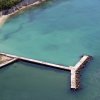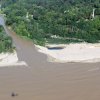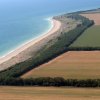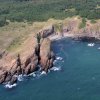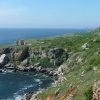Center for Coastal & Marine Studies
MSP-GREEN HOSTED EU LEVEL Workshop: SVENDBORG, 29 MAY 2024!
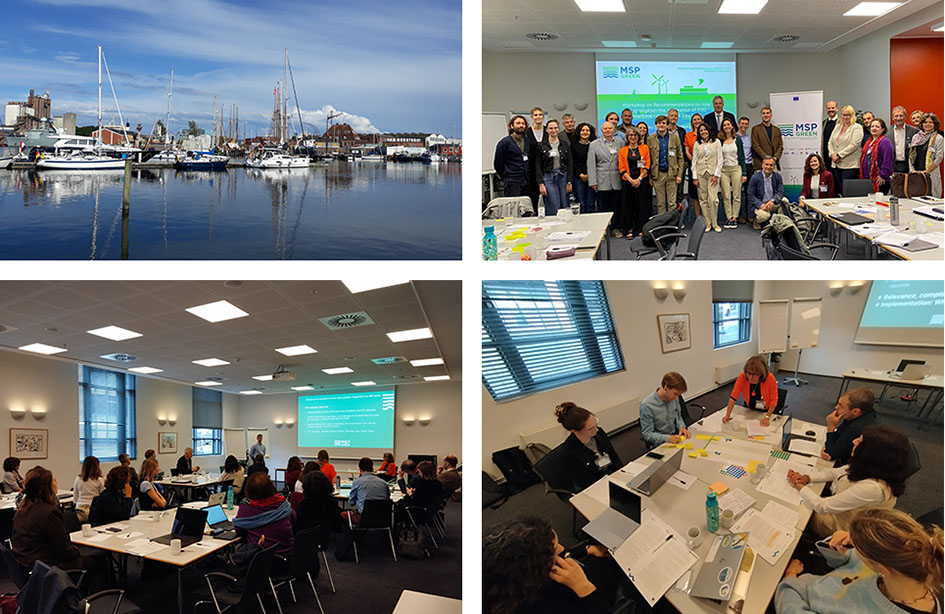
The EU Level workshop to share recommendations on how to strengthen the integration of EGD maritime components into MSP, one of the main outputs of the project, with experts from all over Europe was successfully conducted: 30 experts from sectors, governance and research joined the workshop to evaluate and expand the draft recommendations. The interactive event and working groups provided a lot of feedbacks that will help improve the recommendations.
After introductory presentations, tens of recommendations were considered using tables and colour-notes inputs. The recommendations will be finalized and shared at basin level during five basin events, before making it to the final event.
A special thanks to partners and experts for putting time and effort in creating recommendations and providing useful feedback.
The Black Sea Basin Workshop to share and discuss MSP-GREEN recommendations will be held on 20 of June 2024 in Varna, Bulgaria!
Stay tuned for more details and results!
CCMS PARTICIPATES IN THE NEW EU HORIZON EUROPE PROJECT BLUE CONNECT TO START IN SEPTEMBER 2024
BLUE CONNECT: Strict protection, restoration and co-management of Marine Protected Areas to ensure effective ecosystem conservation and improved connectivity of Blue Corridors
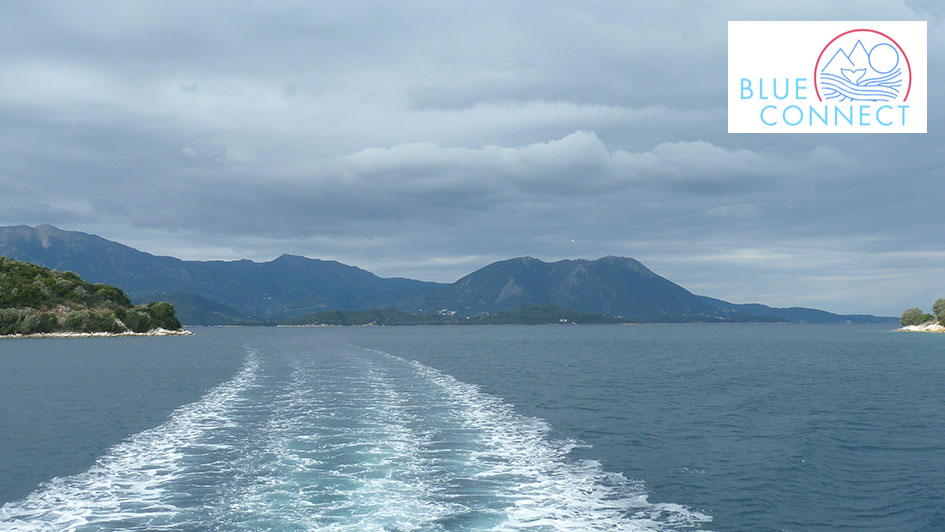
Project duration:
- 42 months | September 2024 - March 2028
Project call:
- HORIZON-MISS-2023OCEAN-01
The BLUE CONNECT project addresses the urgent need to protect and restore marine habitats and ecosystems and to reach ambitious EU and global protection and restoration targets by 2030. Together with Marine Protected Area (MPA) managers, authorities, industries, and local communities from 12 Demonstration sites and beyond, BLUE CONNECT is co-developing, promoting, and demonstrating a systematic approach to marine conservation planning and management.
Brief Communication Paper: Sustaining Coastal and Marine Environments in the Anthropocene
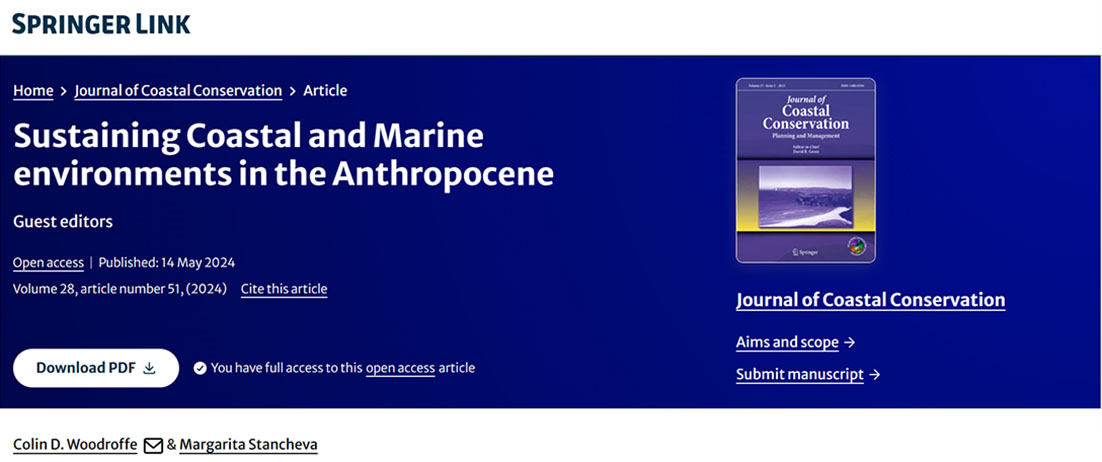
CCMS Director Dr. Margarita Stancheva and CCMS Advisory Committee Member Prof. Colin D. Woodroffe are Guest Editors of the Journal of Coastal Conservation Special Issue that address topics related to sustaining coastal and marine environments in the Anthropocene.
Coastal environments are places of abundant resources and natural beauty. They are highly valued by people and are consequently under pressure with burgeoning populations, also providing substantial cultural and recreational amenities. Human activities are directly impacting coastal and marine ecosystem services through pollution and degradation. Coastal and adjacent marine zones are threatened by natural and anthropogenic activities in the catchments. The low-lying plains associated with deltas and estuaries support ever-increasing populations engaged in agriculture, fishing, aquaculture, and industrial activities. Rapid urbanization is being experienced with many of the world’s megacities on deltas associated with big rivers; deltaic cities are home to more than 150 million people and seem likely to exceed 200 million in the next two decades.
SAVE THE DATE: BLACK SEA BASIN WORKSHOP BRIDGING MSP WITH THE EGD AND BETTER INTEGRATE MPA
20 June 2024, Varna, Bulgaria (Rosslyn Dimyat Hotel), 09:00 – 16:00 CET (hybrid event), by invitation only
The Black Sea Basin Workshop: BRIDGING MARITIME SPATIAL PLANNING WITH THE EUROPEAN GREEN DEAL AND BETTER INTEGRATE MARINE PROTECTED AREAS is jointly organized by the three European Union projects MSP-GREEN, MPA Europe and MSP4BIO, and hosted by CCMS:

The MSP-GREEN EU funded project (European Maritime Fisheries and Aquaculture Fund) (2022-2024) contributes to align Maritime Spatial Planning (MSP) to the ambition of the European Green Deal (EGD) by creating a framework for plans to become marine enablers of the EGD. The framework provides a cross-cutting approach by considering six key topics relevant for marine environment and sustainable transition of blue economy: climate change mitigation, climate change adaptation, sustainable seafood production, marine biodiversity protection, blue circular economy, zero pollution. Recommendations on how to strengthen the EGD ambition of EU MSP plans are one of the main outcomes of the project, drafted by project partners and additional experts (https://mspgreen.eu/).
























